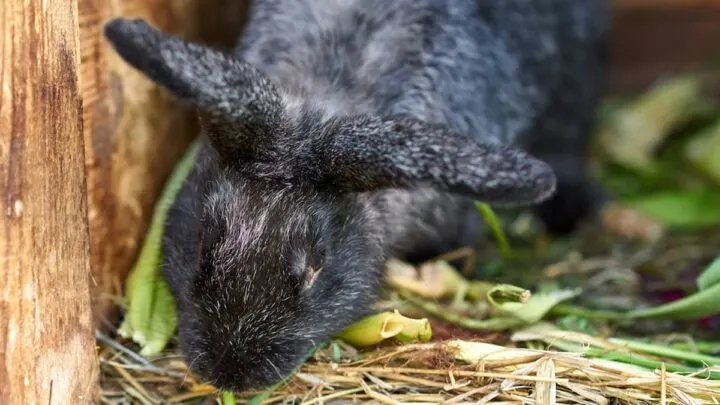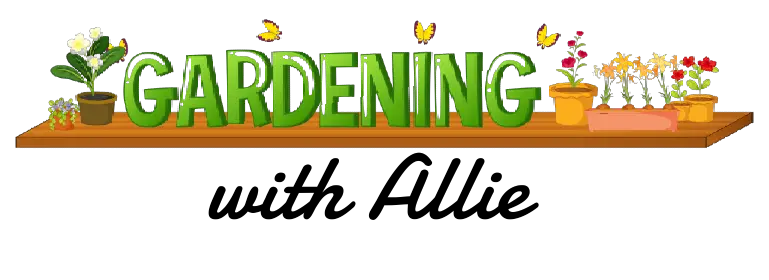After spending weeks planting seeds and starting a healthy cucumber plant, you may start to worry that the local wildlife will sample your cucumbers. When you start to see bite marks on your cucumbers, you can’t help but ask: will rabbits eat cucumbers in my garden?
Yes, wild rabbits will eat cucumbers from your garden. Rabbits love the greens that you grow in the spring and summer, so they’ll sample your vegetables and plant leaves because they are rich in nutrients.
Rabbits love refreshing, juicy vegetables, and cucumbers are not exempt from this! Since rabbits are small and agile, keeping them out of your garden could seem impossible. If you want to learn why rabbits love cucumbers from your garden, just keep reading!

Can Rabbits Eat Cucumbers
Yes, rabbits can eat cucumbers.
Whether the rabbit is wild or a pet, rabbits can eat cucumbers.
Cucumbers are an excellent treat for rabbits of all kinds because they are refreshing and full of water, an excellent addition to any rabbit’s diet.
Rabbits have strong enough teeth to eat the skin, flesh, and seeds without a problem. Rabbits can even gnaw at a whole cucumber if you do not have the time to cut it up.
Since rabbits will eat every bit of cucumber, there’s no waste either!
Cucumbers in your garden are a great choice for your rabbits because they grow above the ground and are easy to find. It is little work for rabbits to find and eat. The large leaves of cucumbers will also provide camouflage as they eat.
Can Rabbits Eat Cucumbers Every Day
Rabbits can eat cucumbers every day.
Some gardens get overwhelmed by cucumber plants as they continue to grow. That may be good for people who love cucumbers, but it is also great for rabbits.
A rabbit that has found a garden with good food will keep returning again and again to eat. A wild rabbit can visit every day to munch on your cucumbers.
Since your cucumbers may be big, the rabbits may come back for a few days to be able to finish off one cucumber from your plants.
An exceptionally comfortable rabbit will choose a new cucumber to take a bite out of each day, which can be the most frustrating!
Rabbits will also eat the cucumber plant leaves if they do not want to eat the cucumbers themselves. Leave munching is much less damaging than eating the cucumbers themselves, but it can still make your garden look rough.

How Do I Keep Rabbits From Eating My Cucumbers
Since rabbits will almost always go for your cucumbers, here are some ways that you can keep rabbits from eating your cucumbers.
Most of these methods are natural and not dangerous to rabbits or other animals, but you can find other methods to keep rabbits out of your garden with more research.
Build A Fence With Lattice
Fencing is one of the best ways to keep rabbits out of gardens.
One type of fencing that you can build is one with pieces of lattice attached to it.
Lattice is a good option because you can choose a kind with small holes that rabbits can’t fit through. The lattice will be attractive in your garden, which is an important consideration for most people.
Ensure that the lattice is secured to the fence and close to the ground. You do not want rabbits burrowing beneath it or squeezing through a loose corner that you didn’t pay attention to.
Build A Fence With Chicken Wire
A less attractive fencing option is a fence with chicken wire.
Compared to lattice fencing, chicken wire will be a more full-proof method for keeping rabbits out of your garden.
Chicken wire has holes so small that there is no chance that a rabbit can squeeze through, even a small one.
Chicken wire is also cheap and malleable, so you can easily flex it around your fence posts.
You’ll still want to ensure that the chicken wire is secure to your fencing and close to the ground. Rabbits can always go under the fence!
Make A Natural Repellent At Home
You can make a natural rabbit repellent at home with entirely safe ingredients.
Mix water and crushed garlic cloves, red pepper flakes, and dish soap. Set it outside to ferment in the sun for a few days, and your new rabbit repellent is ready!
As we will see with some of the other upcoming solutions, rabbits are sensitive to smell. A strong odor that they do not like is enough to send them running away from your garden.
Use the repellent on your cucumber plants and any other plants you want to keep rabbits away from.
Plant Onions To Deter Rabbits
Rabbits hate onions, so that they may keep them away.
Onions won’t guarantee that rabbits will stay away. After all, the rabbits may avoid the onions on their journey into your garden.
If you’re looking for all-natural, harmless ways to keep rabbits away with at least some success, you can try onion plants one season to see the outcome.
Put Sulfur Around Your Flower Beds
Rabbits don’t like the smell of sulfur, so you can sprinkle it around your flower beds to keep rabbits away.
Sulfur may sound like something random to use to deter rabbits, but it works!
Plus, sulfur is easy to use – all you need to do is sprinkle it around! – and safe for plants and other animals.
You will need to add more sulfur after the rain because it may get washed away.
What Will Rabbits Not Eat In A Garden
Rabbits may get their fill from your garden, but rabbits do not eat everything in a garden.
Here is a list of vegetables that rabbits will most likely avoid when they’re taking a tour of your garden:
- Herbs like basil, mint, and oregano
- Vegetables like asparagus, onions, peppers, squash, and potatoes
- Flowers like begonias, daffodils, and lavender
Unfortunately, your fruit and almost all of your green vegetables will become victims to your local wildlife rabbits because rabbits have such a big diet.
Overall, the biggest victims in your garden will be the leafy green plants because they are the most rich in nutrients for rabbits and their diet.
Sometimes rabbits will eat the fruit or vegetable, like your poor cucumbers, but the leaves of your plants can be eaten just as often by rabbits.

Hi there, my name is Allie and welcome to my blog; GareningWithAllie!
Much of what you see written here is just our personal experiences with gardening. Along with the content I write here, there is also a unique collection of gardening topics covered by some of our close friends. I hope you find everything you read here to be helpful, informative, and something that can make your gardening journey the most lovely experience ever! With that said, Happy Gardening!
